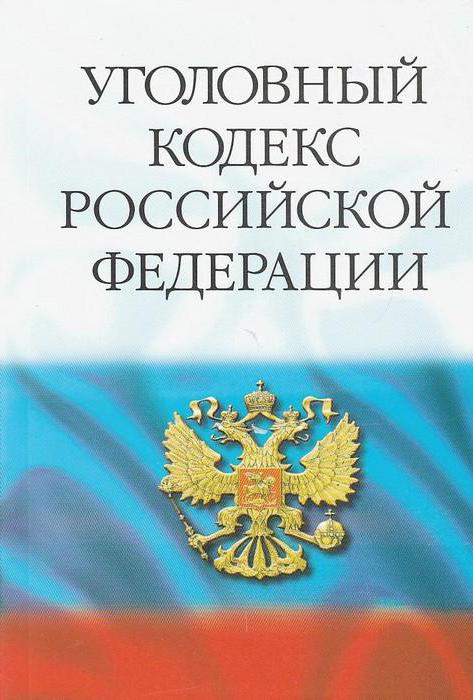One of the most dangerous attacks on state power is considered disclosure of state secrets. Art. 283 of the Criminal Code establishes punishment for this act. Consider the features of the application of this rule. 
Art. 283 of the Criminal Code: composition, punishment
For the disclosure of information considered a state secret, the entity to whom it became known or has been entrusted in the framework of work / service or study and in other cases stipulated by law shall be appointed:
- Arrest for 4-6 months.
- Imprisonment of up to four years. In addition, the perpetrator may be prohibited from staying at certain posts or carrying out activities established by the court for up to 3 years.
Punishment of 1 part Art. 283 of the Criminal Code shall be appointed if other citizens have gained access to the specified information, and in the behavior of the guilty person there are no signs of acts provided for by the norms 274, 276 of the Code.
If the act entailed grave consequences, the sanction is tightened. Guilty in this case, according to 2 parts Art. 283 CCfaces 3-7 years in prison. In addition, he may be charged with the prohibition specified above and for the same period.
Art. 283 CC: commentary on the subject and object
Public relations related to the inclusion of information in the category of state secrets, their declassification / classification, as well as protection in order to ensure the security of the country act as an object of encroachment. 
Subject matter Art. 283 CC, respectively, is a state secret.
The disposition of the article expressly indicates the action for which liability arises - disclosure of information. It involves publicizing information constituting a secret protected by law, in connection with which it becomes known to unauthorized persons.
Action forms
By Art. 283 CC punished by persons who transferred materials or objects classified as state secrets, orally or in writing. In the first case, information may be disclosed during a public conversation or in private conversation, in the second - through the media, in a letter, etc.
AT court practice under Art. 283 of the Criminal Code demonstration of objects, drawings, products, materials, circuits is also recognized as an illegal action. Responsibility for the analyzed article also arises in case of violation of the rules of storage and distribution of materials containing or related to state secrets.
Lawyers Explained
Considering Art. 283 of the Criminal Code with commentsIt can be noted that experts pay special attention to the objective side of the act. Thus, lawyers point out that a crime may involve the commission of both active and passive actions. Examples of the first are considered above. 
Passive actions in the context of the norm should include failure to take appropriate measures to maintain the confidentiality of information. For example, this may be leaving documents in a place where other people can find them.
Outsiders
Such persons are considered entities that do not have access to confidential information. Moreover, information classified as state secrets should not be known to them under any circumstances.
Meanwhile, the mere fact of a citizen's access to other information classified as state secret, or his possession by virtue of service or work, does not exclude the possibility of being recognized as an outsider.
Nuances
Part 1 crime Art. 283 CC, is considered completed at the moment when the information became the property of third-party entities, perceiving and realizing its main meaning. A full understanding of the content of information is not required to qualify an act.
In practice, it is allowed to separate the stages of the assault on cooking and assassination. In the first case, we are talking about making an unaccounted extract from a confidential document, taking a photocopy, etc. In the second case, it is assumed that the information that was made public was not accepted by outsiders for some reason. 
Intent
It can be indirect and direct. In the latter case, the perpetrator understands the danger of his behavior, assumes that as a result of the commission of unlawful acts, confidential information will become known to outsiders and wishes such consequences to occur. Direct intent, for example, occurs when publishing information in the media.
With indirect intent, the perpetrator also understands the danger of action, assumes that the information will be available to other people and consciously allows these consequences, that is, does not take measures to maintain the confidentiality of information. For example, a citizen shares information in a conversation in a public place.
Motive
The disclosure of state secrets is made for various reasons. Most often, the motive of the culprit is the desire to give weight, importance to your person, to win someone's favor. In some cases, the reason for committing a crime can be quite commonplace - assistance in writing a scientific work, for example.
Meanwhile, neither motive nor purpose affects qualifications. 
Qualifying composition
It is said about in disposition 2 of the norm. If there is a qualifying sign - grave consequences - the sanction for the act is tightened.
The concept of grave consequences is an evaluation term. The disclosure of state secrets may, for example, entail the relocation of an object, the receipt of secret information by the special services of a foreign state, the curtailment of scientific and technical research, and so on.
Differentiation of formulations
The crime provided for in the analyzed article must be distinguished from treason. If the state secrets are disclosed, the guilty person does not seek to inflict damage on the state’s external security by transmitting information to representatives of a foreign state.
It is also important that the concept of the recipient of information under article 283 is broader than under treason: information can become the property of any outside citizen.
Subjective part
Only a separate category of persons can be held liable under article 283. First of all, the subject of the crime must have access to state secrets. 
Information should be entrusted to him by virtue of his professional duties or should be known to him in connection with his studies or work. So, the subject of a crime can be a worker involved in the production of special equipment, an employee involved in the reproduction of documentation, and so on.
State Secret: Definition
The state of secrets is information protected by the state in the field of military, economic, counterintelligence, operational investigations, foreign policy, intelligence activities, the dissemination of which may harm the country.
The use of information considered a state secret is regulated by the provisions of the Constitution and the Federal Law "On state secrets" and "on state security." Their distribution is subject to restriction from the moment of their creation (development) or in advance. To streamline the circulation of such data, the state draws up relevant regulatory acts.
Exceptions
The legislation prohibits the classification of information about:
- Disasters and emergencies that pose a threat to the safety and health of the population, natural disasters, their forecasts and consequences.
- Compensation, social guarantees, privileges granted to organizations, individuals, employees, institutions.
- Violation of interests, freedoms and human rights of a citizen.
- The amount of gold reserves and foreign exchange reserves of the Russian Federation.
- The state of health of persons holding senior government posts.
- Violations of the law by state authorities and their employees.
Secrecy
Legislation establishes several degrees of secrecy. Each of them corresponds to the severity of the damage that may occur during the disclosure of information.
The following degrees are established:
- "of particular importance";
- "top secret";
- "secret."
On the relevant documents affixed vultures indicating the degree. Their use for classified information not classified as state secrets is not allowed. 
Declassification of data
The grounds for removing the privacy vultures are:
- The adoption of international obligations by Russia on an open exchange of information, which constitutes state secrets in the country.
- Change in circumstances in connection with which confidentiality of information becomes impractical.
The period for which information may be classified may not exceed 30 years. However, in exceptional cases, this period may be extended. The adoption of such a decision should be carried out after a meeting of the interagency commission for the protection of state secrets.
Additionally
The constitutional rights of persons who have access to information under the headings of “special importance” and “top secret” may be limited. Restrictions can be established individually by authorized bodies (state security). The basis is a conclusion on the citizen's awareness of the information constituting state secrets.